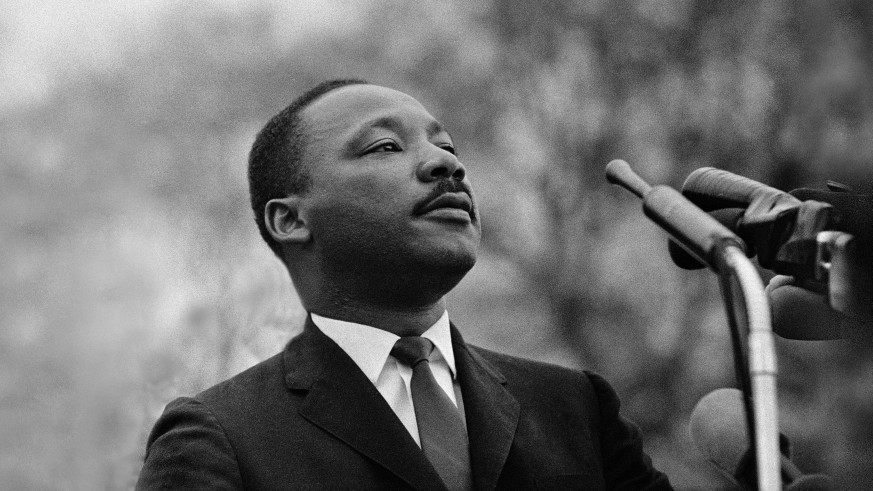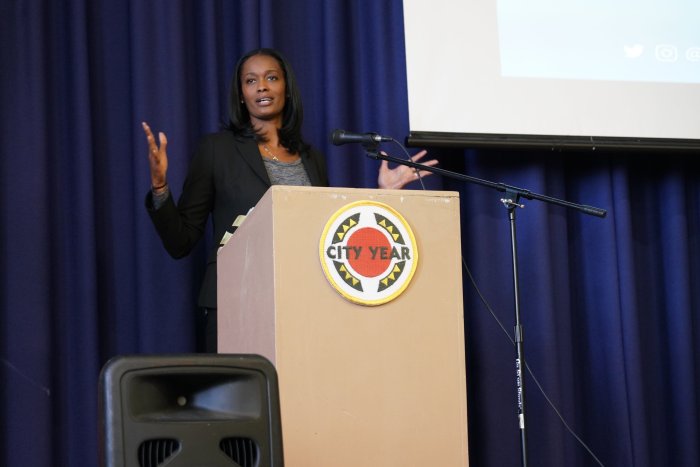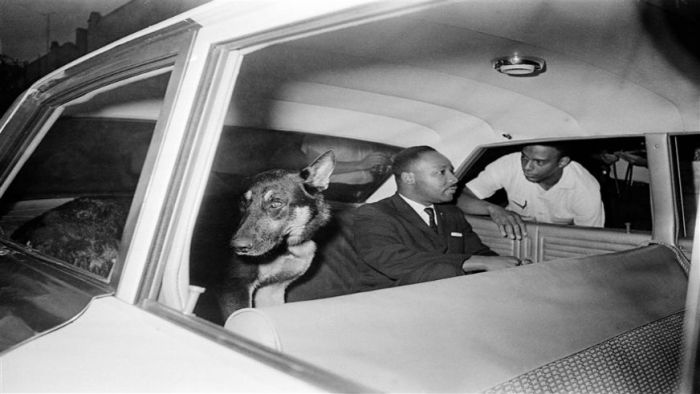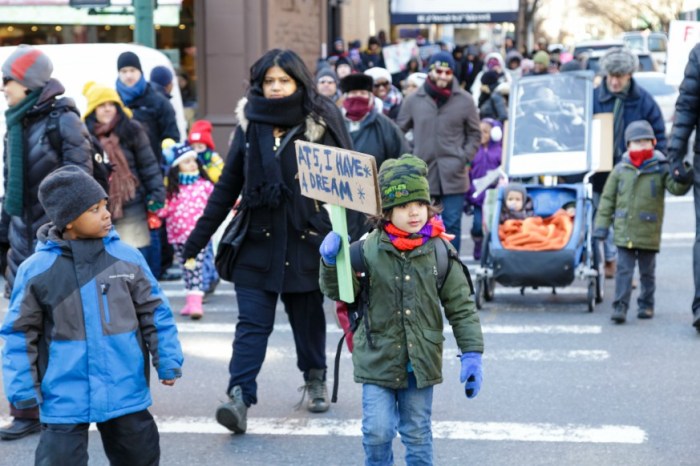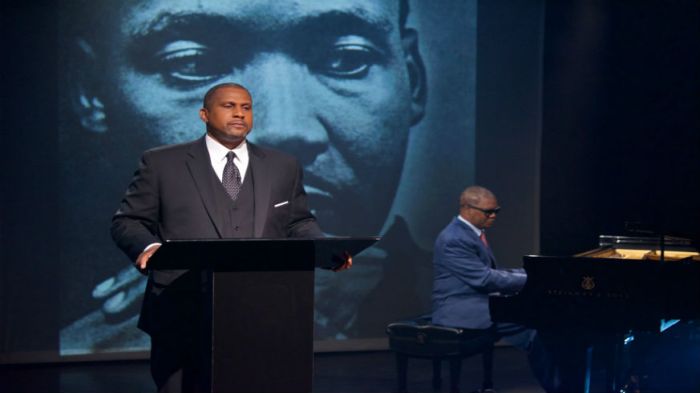Wednesday marks the 50th anniversary of the death of Martin Luther King, Jr, the Civil Rights activist and American icon, who was assassinated at the Lorraine Hotel in Memphis in 1968.
But while the murder is annually mourned on this day every year, many people probably don’t know the reason why Martin Luther King, Jr, was actually in Tennessee on that fateful day.
Last week I attended the press conference for The Film Foundation’s launch of their new curriculum for The Story Of Movies, Portraits Of America, where one of the speakers was Lee Saunders, the President of the American Federation Of State, County and Municipal Employees (AFSCME).
Since the event coincided with the anniversary of the death of Martin Luther King Jr, Saunders used his speech to remind everyone why King was in Memphis, which you can read below.
“Next week, it will be exactly 50 years since the death of Martin Luther King, Jr. Many Americans know that Dr. King was assassinated standing on the balcony of the Lorraine Motel in Memphis, Tennessee. Fewer people know why he was there and what he died for.”
“Two months earlier, on February 1st, 1968, two sanitation workers Robert Walker and Echol Cole, members of AFSCME Local 1733 were working their shift in a driving rainstorm. To seek shelter, they huddled in the back of their truck.”
“That’s when the truck malfunctioned, and the men got caught in the compacting gears and were crushed to death. The union had been warning about unsafe equipment, but no one paid any heed at all. You see, these were black workers in a southern city in 1968.”
“They didn’t have a grievance procedure or a contract. They did backbreaking jobs for poverty wages, without hardly any rights at all. These were modern day plantation conditions.”
“But the horrific deaths of Walker and Cole proved to be a galvanizing moment. It moved their 1,300 AFSCME brothers to make the courageous decision to go on strike, to assert their humanity with an iconic slogan, so simple but so powerful: I AM A MAN.”
“The strike got the attention of Dr. King, who traveled to Memphis several times to rally the community and express his solidarity. He lent his voice to the struggle because he believed that racial justice and economic justice could not be separated from one another…that civil rights and labor rights were one and the same.”
“At the Mason Temple in Memphis on April 3rd, Dr. King delivered what would be the final speech of his life, telling a crowd of thousands that he had been to the mountaintop and he had seen the promised land.”
“’I may not get there with you,’ he said, but ‘we as a people will get to the promised land’.”
“The fact remains that Dr. King’s dream remains a dream not yet fulfilled, and too few understand the cause he fought and died for. The cause of democracy. The promised land is within our reach, but we’re not there yet.”
Saunders then tied it in to why he was in attendance at The Film Foundation event, alongside Dr. Carla Hayden, Jeanine Basinger, Catherine Gourley and Martin Scorsese.
“To get there, we must ensure every American understands the unfinished work, starting with our young people whose idealism and passion for progress impress me every day.”
“We must use every tool and none more important than film to move our people toward a greater understanding of our past and a greater responsibility for our future.”
“Movies don’t just entertain. They educate and inspire. No medium has a greater ability to move us and move us to action than film. Movies create community and help us understand our national identity.”
“Because I love movies…because I love my union…because I believe improving our democracy is a duty we all share…I am proud to be a partner in this project.”
You can learn more about the free education curriculum The Story Of Movies, which has taught over 10 million students to date, by visiting storyofmovies.org and film-foundation.org.
Meanwhile you can watch Martin Luther King Jr. deliver the most memorable moment of his final speech on April 3, 1968, below.

